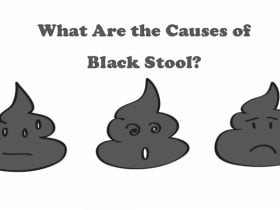Symptoms of Hypoxemia

The manifestations of hypoxemia [5] vary depending on the severity of the disorder and the rate at which hypoxia or anoxia becomes more extreme (no oxygen present). The most common hypoxemia signs include:
-
Headache: Hypoxemia like hypoxia induces low oxygen tension-related secondary headaches, such as acute mountain sickness headache and high altitude headache. Also in primary headaches including cluster headache and migraine and, hypoxemia can also play an important role.
-
Disorientation and uncoordinated movement
-
Dyspnea or shortness of breath
-
Wheezing: wheezing [6] is the whiny, coarse whistling or rattling sound your breath produces because your airway is partly blocked. It can also be a significant symptom of hypoxemia and is associated with the shortness of breath
-
Confusion [7]
-
Fatigue or tiredness
-
Fast Heartbeat: It is possible to notice palpitations in the early stages of hypoxemia. The heart rate will rapidly fall to a noticeable extent as hypoxemia progresses. Abnormal heart rhythms or arrhythmias can develop in serious cases.
-
Decreased blood pressure: As the disease progresses, the blood pressure increase in the early stages of hypoxemia is accompanied by decreased blood pressure.
-
Cyanosis/blue skin: The skin and nail foundations may turn bluish in a condition referred to as cyanosis. One of the most common symptoms of hypoxemia is cyanosis. The lips, ears, fingertips, toes, and nose may become cold and bluish. Cyanosis happens because low-oxygen blood is a dark bluish-red color that can shift the coloring of the skin from a pinky red to a bluish color.
-
Euphoria or sensation of self-dissociation
-
Serious hypoxemia may cause the development of seizures, loss of consciousness, coma, and even death. Respiration can become sluggish and shallow, and the eyes of the pupils may not respond even if the light is going directly into them.
Possible complications of hypoxemia include
-
Encephalopathy
-
pulmonary edema
-
Stroke
-
convulsions
-
Hypotension
-
Arrhythmia
More often than not, these situations arise when the hypoxemia has developed into a severe case of hypoxia.
Hypoxia generally, can be caused by any condition that prevents oxygen from reaching body tissues in normal amounts, such as in anemia, wherein the amount of hemoglobin is reduced, affecting the ability to deliver oxygen to the blood













